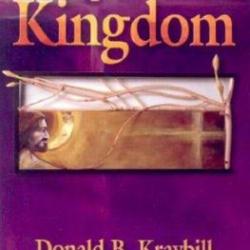The Basic Difference between Lutheran Theology and Reformed Theology
The basic difference between Lutheran Theology and Reformed Theology that caused Luther to say of the Reformed that they had a “different spirit” is Christology and how the different Christologies play out in the sacrament of the Lord’s Supper which both Lutherans and Reformed consider a sacrament (means of grace).
Luther believed and taught, even insisted, that because of the communication of attributes (communicatio idiomatum) of the incarnation, the risen and exalted Jesus Christ is capable of being present in many places at the same time. His risen body is “in, with, and under” the bread and wine in the Lord’s Supper. This has come times been labeled “consubstantiation,” a term few Lutherans accept.
The Reformed theologians such as Zwingli, Calvin and Bucer, rejected that Christology and insisted that because of his humanity, Jesus Christ cannot be present in more than one place at one time, except through the mediation of the Holy Spirit. Thus, they believed, as have most, if not all Reformed theologians since the Reformation, that Jesus Christ is still human in every respect including a localized body. Thus, he cannot be “in, with, and under” the bread and wine in the Lord’s Supper. He can be present in the sacrament of the Lord’s Supper through he mediation of the Holy Spirit. (Or, in Zwingli’s case, there is no “real presence” or special grace in the Lord’s Supper which is a “memorial meal.”)
Today, perhaps, the memory of that debate is being lost; most Lutherans and Reformed Christians probably don’t know anything about it. But the theologians of both sides know about it and remember it.
A king of Prussia forced the Lutherans and Reformed into an ecclesiastical union (the Prussian Union Church) which still exists, but many Lutherans, especially, left it to found their own, separate churches. They were often persecuted, so they left Prussia. Many came to America and the Lutheran Church—Missouri Synod is one result of that departure.
Today, many non-conservative Lutheran and Reformed Christians have no problem cooperating with each other and there are some groups that include both and some Lutheran and Reformed denominations have intercommunion and even recognition of ordinations.
But the old differences remain insofar as we want to talk about traditional, classical forms of theology, especially Christologies and ecclesiologies (including sacraments). Most Reformed churches are either Presbyterian in polity or congregational. Some Lutheran churches have adopted something closer to Presbyterian polity than Luther would have liked.
Almost all the Puritans were Reformed AND Calvinist, so in America especially the two have been treated as synonymous. But especially Swiss and Dutch based Reformed churches and their theologians have resisted that identification (viz., “Reformed” and “Calvinist”).
Another example. The Hungarian Reformed Church is not Calvinist, at least not in the sense we mean that here in the U.S. (TULIP). There may be Calvinists in it, but the church is very ecumenical and broad in theology. But I recently listened to an American sociologist talking about Viktor Orban, the prime minister of Hungary, and she called him a “Calvinist.” I’m not at all sure he would like that. He belongs to the Reformed Church of Hungary, but you certainly don’t have to be Calvinist to be a member of that church, just as in the U.S. you don’t have to be a “TULIP Calvinist” to be a member of the United Church of Christ or the Presbyterian Church in the U.S. (both member denominations of the World Communion of Reformed Churches).
I suspect, but am open to correction, that when Tom Wright identifies himself as “Reformed” he means he’s not on the “liberal side” of the Church of England. He told me he sees himself as a spiritual descendent of British Puritanism within the Church of England (not the separatist Puritans). I’m not sure what that means, exactly, as his book “Justification” describes salvation in a way with which I can fully agree as an Arminian.
















